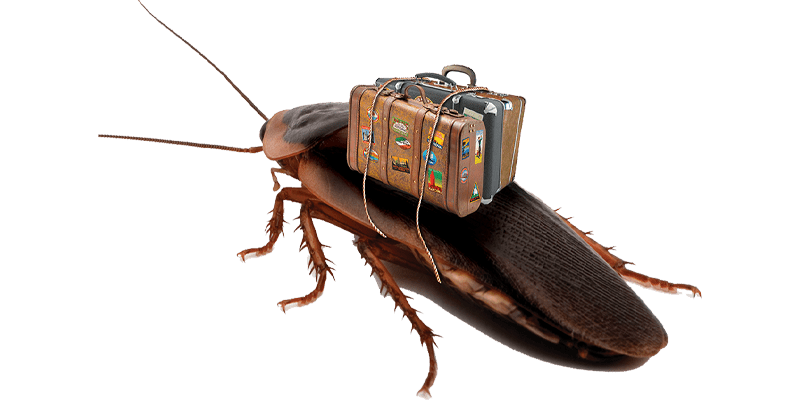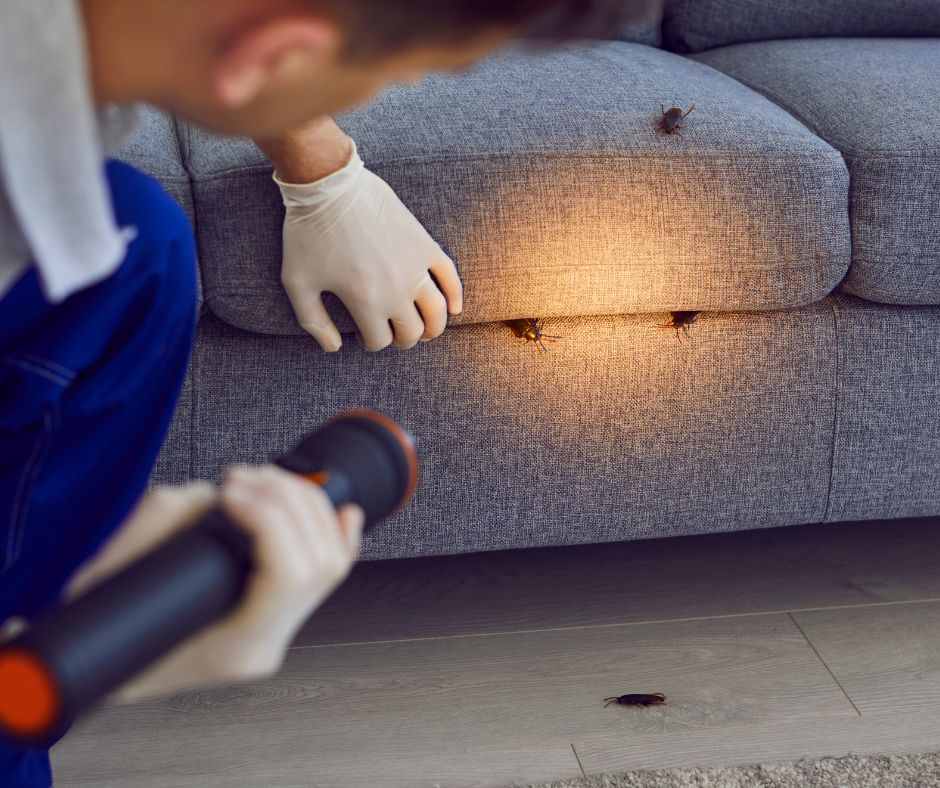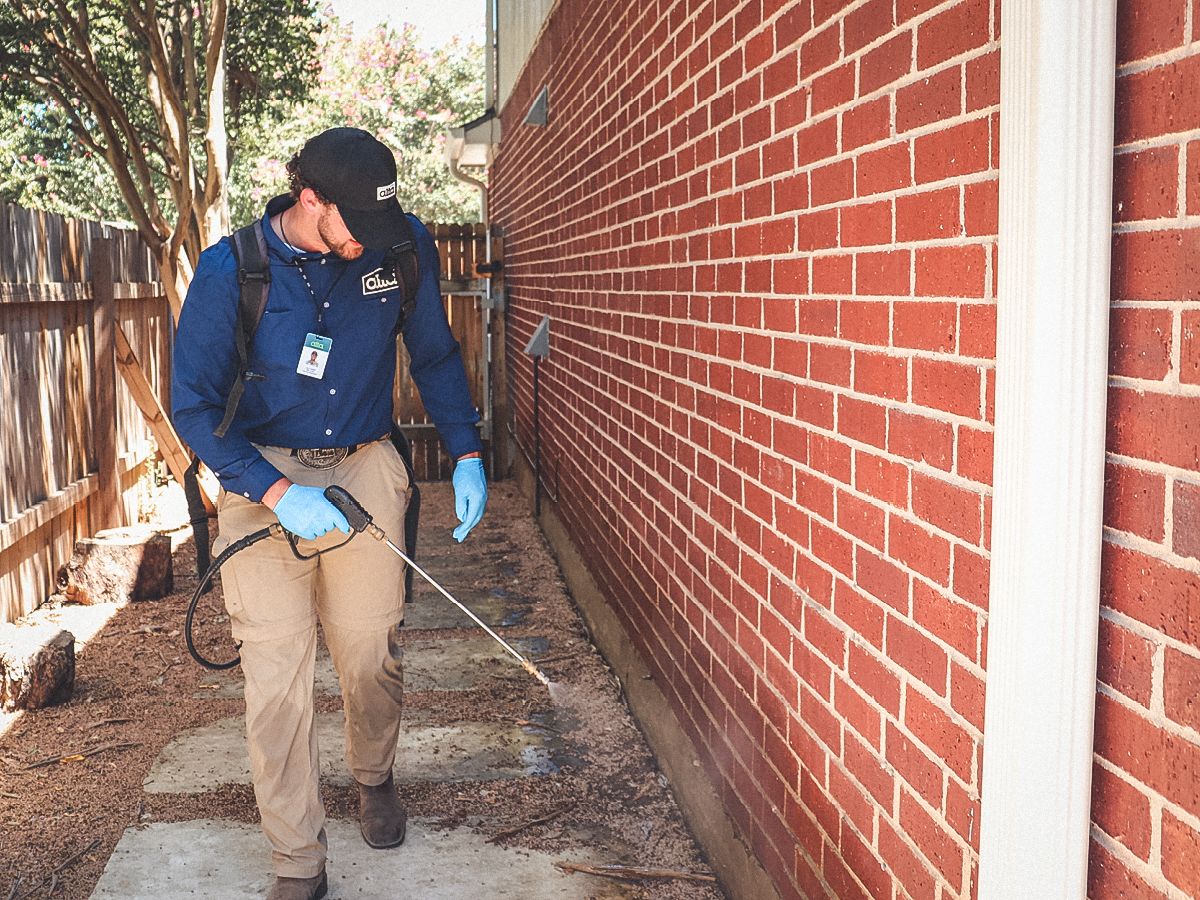Ant Exterminator Near Me: How to Eliminate Ants Fast and Efficiently
Wiki Article
Uncover the Importance of Parasite Control in Preserving a Healthy Setting and Treatment Methods
The Role of Insects in Environments
Parasites, often checked out solely as annoyances, play a complex duty in ecosystems that is crucial for keeping eco-friendly balance. They contribute significantly to different eco-friendly processes, including pollination, nutrition cycling, and insect control. Several insect species, such as bees and butterflies, are vital pollinators for a vast array of plants, which in turn supports biodiversity and food manufacturing.Furthermore, pests act as target for countless killers, producing a crucial web link in food internet. This interdependence makes certain the survival of different types and assists manage populations within communities (Termite treatment Port Charlotte). In addition, decomposer pests, such as specific beetles and fungi, are critical in damaging down natural matter, thus enriching dirt and promoting nutrient recycling.
On the other hand, while insects can be valuable, their overpopulation or intrusion right into non-native settings may disrupt these environmental features. This intricacy highlights the significance of understanding bug dynamics, as reliable pest administration methods must take into consideration both their environmental functions and prospective effect on human activities. Balancing pest existence while decreasing harm is crucial for maintaining the honesty of ecological communities and making certain agricultural productivity.
Health And Wellness Threats Related To Bugs
The existence of parasites in various environments expands beyond their environmental roles, as they also posture substantial health and wellness threats to pets and humans. Numerous pests, including bugs, rats, and parasites, are service providers of illness that can have significant health and wellness ramifications. Rats are recognized to transfer hantavirus and leptospirosis, both of which can lead to extreme breathing and renal issues, respectively.Bugs such as ticks and insects are infamous for spreading vector-borne conditions like malaria, dengue fever, and Lyme illness. These ailments can cause high morbidity and mortality prices, specifically in susceptible populaces. Furthermore, insects like vermins and roaches can worsen allergic reactions and asthma, adding to breathing troubles in people, especially those with pre-existing conditions.
Moreover, the visibility of parasites can cause mental stress and anxiety and discomfort, affecting general well-being. Contamination of food and surface areas by bug droppings and remains can result in foodborne health problems, highlighting the relevance of keeping hygienic problems. For that reason, comprehending the health threats related to pests is vital in recognizing the need of effective pest monitoring approaches to secure human and animal wellness.

Benefits of Effective Parasite Control
Reliable bug control is essential for maintaining a healthy and balanced and safe environment, as it continually mitigates the countless threats connected with pest infestations. One of the primary advantages of efficient bug management is the decrease of health hazards. Pests such as rodents, mosquitoes, and cockroaches are vectors for illness that can influence both people and family pets. By managing these populations, the likelihood of disease transmission is considerably reduced.In addition, effective bug control safeguards property and frameworks from damages. Several insects, like termites and woodworker ants, can trigger considerable architectural damages that might require expensive fixings. By proactively handling these property owners, infestations and companies can safeguard their investments.
One more substantial advantage is the improvement of total lifestyle. A pest-free atmosphere adds to mental well-being and decreases stress and anxiety linked with infestations. Effective bug control fosters a more secure atmosphere for kids and family pets, making certain that homes continue to be refuges complimentary from disease-causing organisms and damaging chemicals.
Typical Insect Control Techniques

In the realm of parasite monitoring, various methods are employed to deal with invasions successfully. These strategies can be broadly categorized into 3 major approaches: social, mechanical, and chemical controls.
Social control involves modifying techniques to minimize bug survival, recreation, and establishment. This might consist of plant rotation, correct hygiene, and habitat adjustment, which jointly produce a setting much less favorable to pest spreading.
Mechanical control employs physical methods to get rid of bugs (Termite treatment Port Charlotte). Strategies such as catches, vacuum cleaners, and obstacles are generally used to directly get rid of insects from an area. This technique is particularly reliable for handling rats and insects without the use of damaging chemicals
Chemical control entails the application of chemicals to handle insects. These materials can be classified into fungicides, herbicides, and insecticides, each targeting certain types of parasites. It is essential to make use of these chemicals deliberately, adhering to safety guidelines and regulations to reduce potential harm to non-target varieties and the atmosphere.
Each pest control method has its advantages and restrictions, and typically, an incorporated strategy integrating numerous methods produces the most effective lead to keeping a pest-free atmosphere.
Lasting Insect Administration Practices
Lasting insect management techniques include a variety Exterminator in port cgarlotte of methods developed to minimize ecological impact while efficiently controlling insect populaces. These methods prioritize the use of environmentally pleasant approaches over chemical pesticides, consequently reducing the risk of damage to non-target types, consisting of beneficial insects, wildlife, and humans.Integrated Pest Management (IPM) is a cornerstone of lasting methods, combining biological, cultural, mechanical, and chemical strategies to take care of bugs. For instance, biological control involves introducing natural predators or bloodsuckers to suppress parasite populaces. Social methods, such as crop turning and polyculture, interrupt pest life process and enhance ecological community durability.
Mechanical approaches, such as obstacles or traps, can effectively prevent parasite accessibility without chemical treatment. Additionally, keeping healthy ecological communities with proper soil monitoring, plant health and wellness, and biodiversity can naturally reduce pest problems.
Education and learning and understanding are vital elements, encouraging communities and individuals to identify parasite risks early and apply preventive measures. Termite treatment Port Charlotte. By promoting an all natural method that stabilizes bug control with eco-friendly stability, sustainable insect monitoring practices not only protect frameworks and crops yet likewise contribute to a healthier atmosphere for future generations
Conclusion

Understanding the health risks linked with pests is important in identifying the requirement of efficient insect administration methods to protect human and animal health and wellness.
Efficient pest control is essential for maintaining a secure and healthy environment, as it regularly mitigates the many threats associated with bug invasions.Integrated Bug Monitoring (IPM) is a cornerstone of lasting practices, integrating biological, cultural, mechanical, and chemical methods to manage insects. By recognizing the function of insects, acknowledging affiliated health risks, and employing varied therapy methods, a lasting approach to pest monitoring can be accomplished. Integrated Bug Management (IPM) stresses an all natural methodology that mitigates injury to helpful microorganisms while properly controlling pest populations.
Report this wiki page